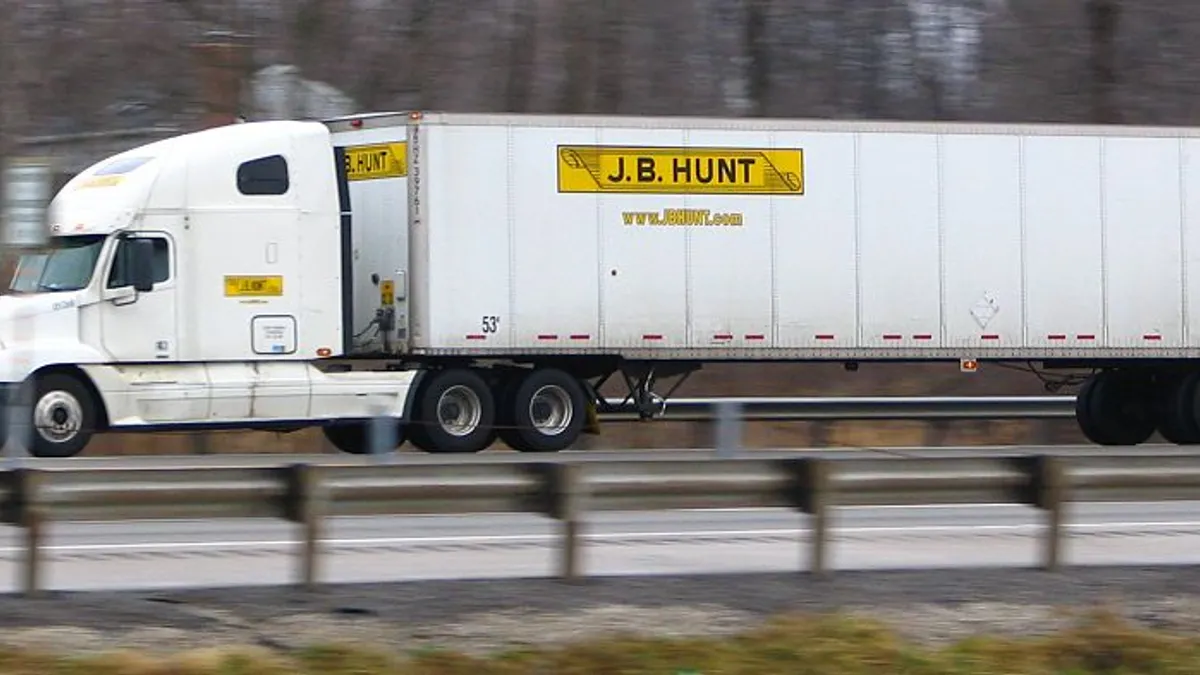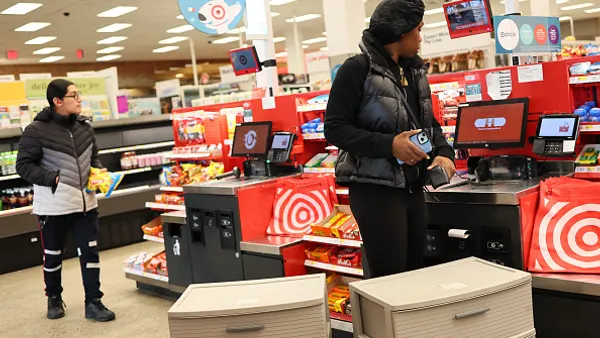Dive Brief:
- J.B. Hunt agreed to settle a February 2019 lawsuit alleging California drivers were misclassified as independent contractors (Duy Nam Ly, et al. v. J.B. Hunt Transport Inc. No. 2:19-cv-01334 (C.D. Calif. July 6, 2020)). The drivers' filing seeks approval for the settlement, which would award 312 drivers an average of $20,000. The total value of the settlement was pegged at $6.5 million by law firm Marlin & Saltzman.
- In the most significant claim, J.B. Hunt allegedly failed "to reimburse for necessary business expenses" under California labor law, but the drivers also alleged failure to give breaks and failure to meet minimum pay levels. The claims came after J.B. Hunt allegedly put the drivers under Intermodal Independent Contractor Operating Agreements (ICOA), which asserted drivers were responsible for paying their expenses.
- The case hinged on the drivers' claim that J.B. Hunt misclassified them, a huge labor policy issue in California. The lawsuit turned into a mediation and ended as attorneys for both sides agreed they did not want the case to drag on for years, according to the filing.
Dive Insight:
The J.B. Hunt case could have turned into a major application of the California Supreme Court's decision, Dynamex Operations West Inc. v. Superior Court of Los Angeles, an April 30, 2018, ruling. The decision rocked California employers, who were thus instructed to classify persons as independent contractors only if they met three criteria.
Those criteria became known as the "ABC test." California companies, from trucking firms to hair salons, could classify workers as independent contractors if:
(A) The worker is free from the hirer's control and direction in connection with the performance of the work while under the contract for the performance of such work.
(B) The worker performs a job that is outside the usual scope of the hiring entity’s business.
(C) The worker is customarily engaged in an independently established trade, occupation or business of the same nature as the work performed for the hiring entity.
The drivers claimed they did not qualify to be listed as independent contractors, yet were denied meal and rest breaks, as well as minimum pay. The alleged expenses claimed exceeded $17 million, according to the filing.
It was not the first time J.B. Hunt has disputed California labor policy. In February 2018, J.B. Hunt asked the U.S. Supreme Court to weigh in on the state's meal-and-break law. Under California law, employees must get a 30-minute food break if they work more than five hours a day. Employees who work more than 10 hours a day must receive a second 30-minute food break, according to Shouse California Law Group.
J.B. Hunt said California could not override federal law, which does not require meal or break periods. And on this point, California labor law has been hotly disputed by the California Trucking Association (CTA), which has sued to nullify AB5's effect on trucking.
In May, 13 industry groups and trucking firms signed on to four amicus briefs in support of the CTA in the AB5 lawsuit. Proceedings are ongoing in the 9th Circuit Court of Appeals. The main argument against AB5 by trucking officials is that the Federal Aviation Administration Authorization Act of 1994 prevents states from legislating policy "related to a price, route, or service of any motor carrier … with respect to the transportation of property."
J.B. Hunt officials did not immediately return a request for comment. The drivers will go to court on Aug. 17 in a Los Angeles federal court to seek approval of the agreement.














